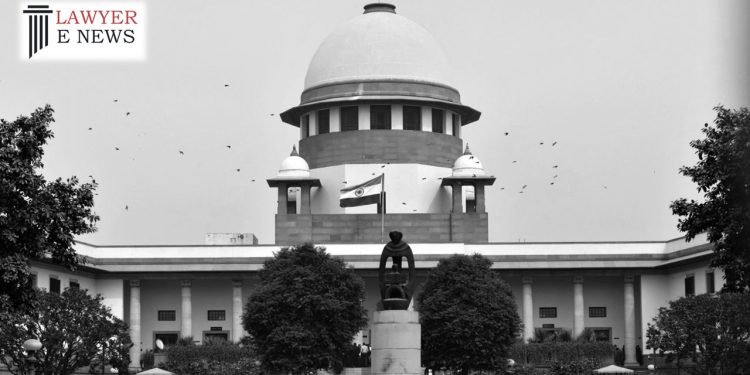Supreme Court: School Certificate of Date of Birth Prevails in Determining Juvenility, Death Sentence Invalidated

In a landmark judgment, the Supreme Court of India has ruled that the certificate of date of birth issued by school authorities based on the admission register holds pre-eminence in determining the juvenility of an accused or convict. The Court emphasized that the date of school certificate by the school must be accepted for determining the age of the accused or convict claiming to be a juvenile at the time of the commission of the offense. The decision was delivered by a Bench comprising of Hon’ble Mr. Justice K. M. Joseph, Hon’ble Mr. Justice Aniruddha Bose, and Hon’ble Mr. Justice Hrishikesh Roy.
The Court stated, “Though the heading of the said section reads ‘presumption and determination of age’, the section itself does not specify that the date of birth certificate by the school would only lead to presumption. The way the provision thereof has been framed, the documents referred to in the first two sub-clauses of sub-section (2) of Section 94 of the 2015 Act, if established in the order of priority, then the dates reflected therein have to be accepted to determine the age of the accused or convict claiming to be a juvenile on the date of commission of the offense.”
The judgment further clarified that the lack of inspiration from the age-determining authority must come for a cogent reason and should not be based on the authority’s own perception of the juvenile’s age. The Court emphasized that the documents not specified in the statute cannot be considered for the process of age determination.
In this particular case, the applicant had produced a date of birth certificate issued by the Rajkiya Adarsh Uccha Madhaymik Vidyalaya, Jalabsar, which recorded his birth date in the year 1986. The Court noted that the state failed to provide any compelling contradictory evidence to challenge the reliability of the certificate. As a result, the Court accepted the certificate as evidence of the applicant’s age, concluding that he was a child/juvenile at the time of the offense. The Court invalidated the death sentence imposed on the applicant, stating that he had already served more than 28 years of incarceration, exceeding the maximum punishment under the law.
The judgment also discussed the approach to be taken in determining juvenility. The Court stressed that a casual or cavalier approach should not be adopted, but the gravity of the offense should not be the sole reason to deny the benefits granted under the 2015 Act. The legislature has provided for exceptions in cases involving heinous crimes, as specified in Section 15 of the 2015 Act.
The decision holds significant implications for cases involving the determination of juvenility and underscores the importance of relying on reliable documents, particularly school certificates of date of birth, in such inquiries.
Date of Decision: 27th March, 2023
NARAYAN CHETANRAM CHAUDHARY VS THE STATE OF MAHARASHTRA





